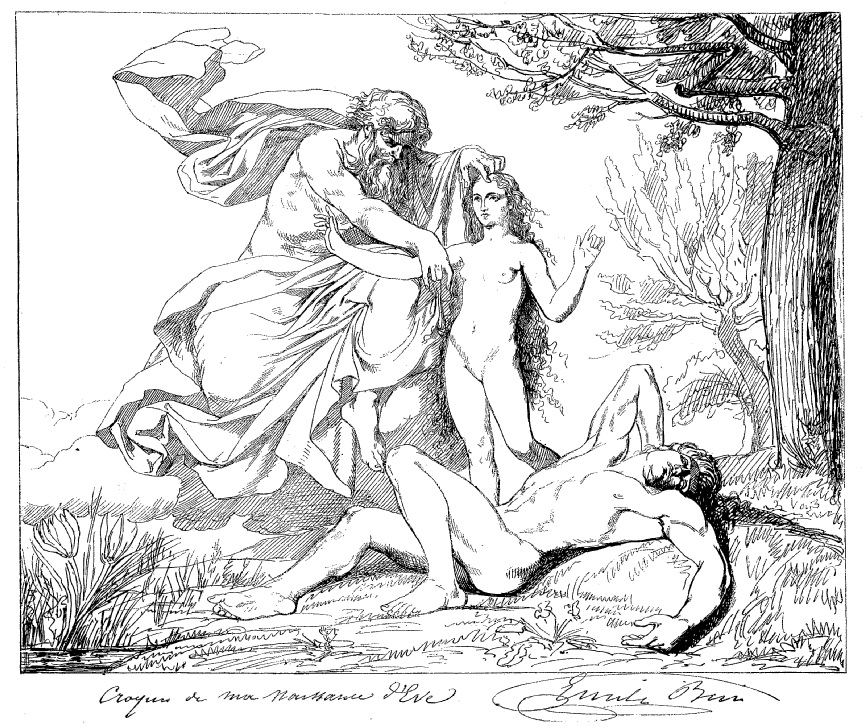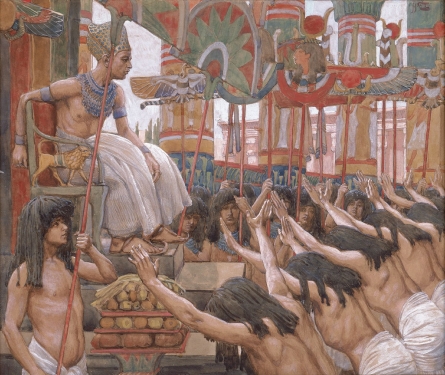Adam was a simple guy. A guy who represented the first of human creation. Formed from earth with a rather basic understanding of who he was or what he was meant to be doing, he took the instructions of the one who made him and quite simply got on with life. Tend God’s garden. Check. Guard and keep it. He did. He was treading an uncharted path with God’s direction. The simple life.

Exploring the garden might have been interesting for a while but soon he began to notice there was something different about him. The animals around him were in twos. He was the only one of his kind. And though he had God come chat with him in the cool of the day regularly, there was still something missing and he couldn’t put a name to that one. Like I said before, Adam was a simple guy and now he was a simple guy with needs he couldn’t articulate.
God saw the difficulty that Adam was facing and with a loving heart gave him more work to do. [1]Genesis 2:18-20 Perhaps to take his mind off the longing he felt. Ironic, wasn’t it?
Some would say that was unfair, seeing that he could easily have created a companion for Adam immediately without the added workload. Many would find this difficult to understand. Why give the man more work instead of giving him what you sensed he needed? Was God just more concerned with furthering his own interests than he was in dealing with Adam’s emotions? Or was God going somewhere with this?
It was in answering his calling and taking up his responsibility to creation that Adam’s needs were met.
While those inclined to the former angle might have a point, let’s take a step back and reassess the situation. Perhaps there is a deeper lesson to learn here because (a) we know God likes to teach through stories and (b) the story would make little sense if God did not require Adam to somehow apply himself in order to get what he needed.
You see, Adam was already doing God’s work in the garden. Work fit for one person to handle. By increasing the workload, God was creating the vacancy that Eve would come to fill. However, that opportunity for a help mate was purely up to Adam. If he chose to take on the additional work, Eve could then be made. If he chose not to take on the additional work, there would be no vacancy for Eve to fill and as such there might be no need for her to be formed. It was only when Adam did God’s bidding and the work load increased that the opportunity for Eve to be made was brought to the fore. It was in answering his calling and taking up his responsibility to creation that his own needs were met. [2]Genesis 2:20-22
It wasn’t about him.
The Shunammite is another interesting example. [3]2 Kings 4:8-37 She made room for Elisha in her home so that whenever he passed through her town, he had a place to rest before he continued his journey. Whether or not she knew it, she had a calling that she was fulfilling – not unlike Adam. And like Adam she didn’t express her need or even expect it to be met. But it was in caring for the needs of another human being that the issue of her own needs came to the fore.
It wasn’t about her.
It was in caring for the needs of another human being that the Shunammite’s needs came to the fore.
Moses too had a purpose. He was called to lead the children of Israel out of slavery. Yet the things he felt he needed, were things he didn’t have. No eloquence, no fireworks, no confidence. [4]Exodus 4:10 But when God said go, he went, albeit reluctantly. As the story unfolds we see that Moses went from a man who couldn’t speak to one who couldn’t stop speaking. The tools he felt he needed were given while he went about God’s business.
It wasn’t about him either.
Finally I must mention Noah. [5]Genesis 5:32 – 10:1 He was instructed to build God a boat large enough to save at least two of each animal that lived above water from the pending flood. Even though he was described as a good man, it was only in his obeying God’s instruction that he was able to find deliverance for him and his family. If he chose not to work with God his own safety could never have been established. Like Adam, his need was met in him doing something for the good of creation.
It was never about him.
I know this sounds a little crazy but if these stories ring true, it must mean that there are things we need that we can only attain if we go about God’s business; fulfilling our God given purpose. That our existence here on earth is not primarily about satisfying our wants and needs. It’s about tending creation. It’s about finding purpose in helping, healing and contributing to the well-being of the world we live in and the people that inhabit it with us. What we need and want will be provided for by the One who has already seen the need and created an enabling environment for its solution. For it’s not about us individually, it’s about us collectively.
Our existence here on earth is not primarily about satisfying our wants and needs.
Jesus had an interesting take on this issue. [6]Matthew 6:25-33 He said that we shouldn’t worry about the food we will eat or clothes we will wear. For our Father in heaven knows these needs and will provide for them. Instead, he inspires us to put aside these worries about self and seek first the kingdom of God and its righteousness, and all other things would be added. And what is this Kingdom? Living according to God’s rule law which he simplified as loving God and loving your neighbour as yourself. [7]Mark 12:29-31
By reaching out to those around us in need, caring for the sick and taking a stand against injustice, we too can tend this garden called earth, which we inhabit. Put simply, Jesus was saying “be like Adam and let God be God.”
Adam felt a need and he felt loneliness, but he didn’t let those feelings stop him from doing God’s work. The lack of a companion did not deter him from tending the garden and doing it well. If we take a cue from Adam, we can learn not to allow our needs, aspirations, circumstances and emotions limit our capacity to be effective forces for good.
When we put others first, we give God the opportunity to put us first.
It is hard to be kind and considerate on an empty stomach and it is even more difficult to even think about alleviating the suffering of the next person when you are in pain. But learning to rise above our circumstances to tend God’s world, by reaching out to others in need, visiting the sick, helping the stranger or feeding the poor, can only result in one thing. That God will see our needs, like he saw Adam’s, and he will attend to them.
The story of Adam is much more than a creation myth. It contains a myriad of useful life lessons. Let us learn that like Adam we must live a life of purpose, taking responsibility for doing good to and for others; irrespective of how we feel or what we need. For it is when we put others first, that we give God the opportunity to put us first.
Let us lend God a hand.


